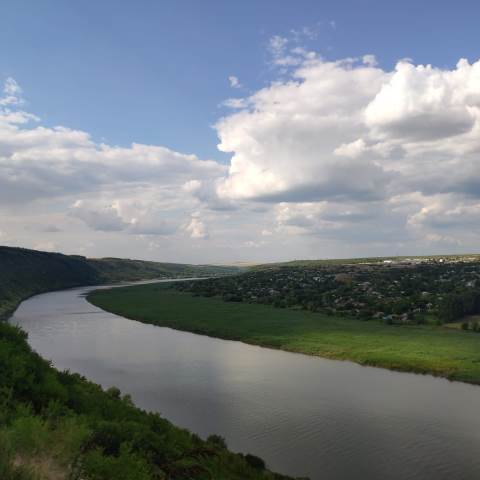

My name is Veeka Malanchuk, and I am a senior in the Global Studies program. I am also involved in newsroom, AMP, Cooper house, senior ventures, model UN and Spanish club. I have always loved to travel, learn languages and experience a new culture. I want to share a story with you about one of my recent experiences and how it relates to my evolution as a global citizen through the Global Studies program.
During my time at Darlington, I became interested in the Global Studies program because of my love of traveling and learning languages. I take Spanish and self study Russian in hopes to become fluent in both and use them in my future career.
To fulfil my Global Studies program requirements, I took Global Issues, participated in Model UN, and took world language courses in order to be proficient in Spanish. I really believe that taking global studies with Mr. Wagshul and my experience in Model UN helped me most throughout my experience. These taught me about world issues and how the different word organizations work in order to resolve the conflict. In Model UN we learned about Global Issues and the UNDP’s Sustainable Development Goals. I chose to focus my research and project on the SDGs #10 Reduced Inequalities and #16 Peace and Justice because of the social, cultural and linguistic divide Moldovans experience everyday within their country.
Moldova’s official language is Romanian/Moldovan, however there are many Russian speakers as well. While different languages being spoken in a country seems normal and peaceful, this is not the case. The cultural divide between Romanian an Russian is very strong and tends to cause tension among the everyday people. Citizens of Moldova must be able to communicate in both languages in order to interact with necessary people, however the difference of languages has caused a bias in some. While many signs will be in both Russian and Romanian for the convenience of the people, government signs will not. Workers will prefer to be spoken to in Romanian and will act differently towards Russian-only speakers. While neither language is being oppressed, some people treat Romanians differently than Russians and vice versa. While in Moldova, I experienced this bias first hand as a student studying and only being able to communicate in Russian; I got corrected into speaking Romanian in public places and even got kicked off a public bus for not speaking Romanian.
These tensions go deeper than simply communication and annoyance, however. They stem from the history of Moldova with Russian and Romanain and its current political views. Moldova, originally known as Bessarabia, was back and forth between the Ottoman Empire and the Russian Empire as they continued to fight many wars. In 1812 Bessarabia was taken by the Russian Empire, however reverted to becoming a part of the Romanian Empire, but then came under Russian rule again in 1940. Moldova later became a part of the iron curtain in the block of soviet countries. During this time, Romanian and Russian were somewhat mixed. Before 1989 Romanian was read and written in the cyrillic alphabet. This forced people into knowing a bit of both languages and only blurred the line between Russian and Romanian. However, on August 31, 1989 the country passed the language law which stated that Romanian be written in the Latin script. This day marks a national holiday for Moldovans known as Language Day. Along with many others, after the fall of the Soviet Union Moldova announced its independence in 1991. Since its independence Moldova has struggled to develop as a strong and stable country. While this transition was hard for many countries, Moldova had a very hard time because of conflicts within their own and brand new country. Moldova has two autonomous states: Transinistria and Gagauziya. These two states have very different cultures one being Russian and one being Turkish which stems from the Ottoman Empire. Transnistria declared its independence from Moldova in 1990 which resulted in a civil war. While a ceasefire was declared in 1992, there are still some tensions present and the state acts as its own country with a different currency, language (Russian) and passport than Moldova. This autonomous state is very much so Russian and lies on the border of Ukraine. Gagauziya is made of predominantly turkish descent people who have their own language (Gagauz) and culture. This state lies on the border of Romania. These two very different states somewhat represent the pull that some have towards Romania and Western ideas and the pull that some have towards Russia and Eastern ideas. While Moldova actively moves towards western ideology and becoming a member state of the EU, they have debt to Russia and depend on the export of their goods. Moldova is the poorest country in Europe, extremely underdeveloped, and is rampat with corruption. Some view Russia as a savior of Moldova as they gave the country stability and economic power, while others view it as a capture who oppressed their culture. These feelings directly translate into language bias.
This experience helped me understand how much language can make an impact. Sometimes people just speak without thinking about their language, however Moldova has shown me that language is not just grammar rules but that language can also carry culture and history in it.